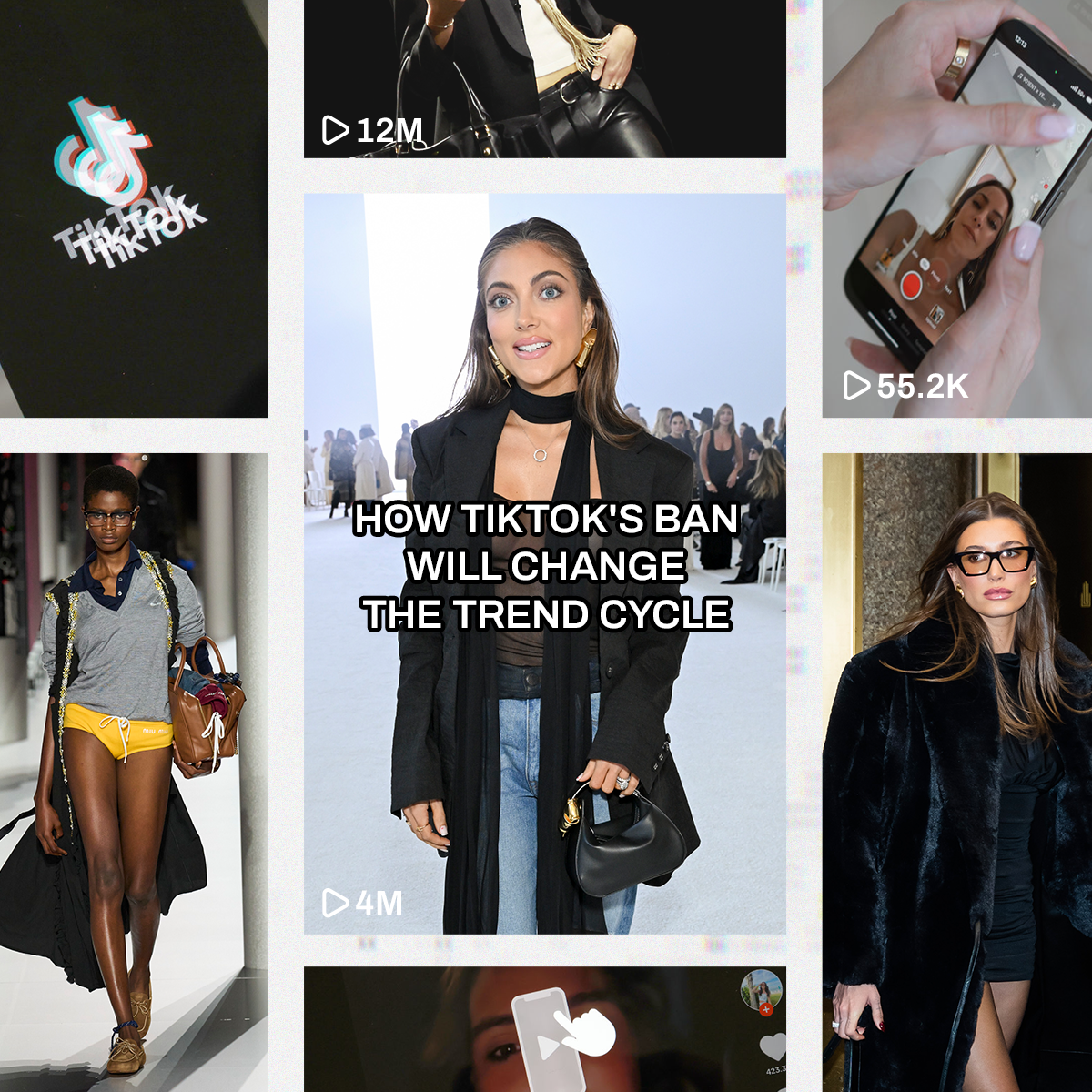
It’s undeniable that TikTok and its loyal content creators—some with social followings the size of small countries—have permanently altered the fashion landscape. Since its U.S. launch in 2018, the app has been a Pandora's box for the industry, with its impacts unfolding in real-time. TikTok has opened up the playing field for smaller brands and given once-armchair experts access to a notoriously exclusive industry.
The platform also promotes self-discovery through personal style, with movements like the 75 Hard Style Challenge encouraging users to wear only what's in their wardrobe for three months. Over 375,000 TikTok posts are currently tagged with #75hardstylechallenge, and participants, even those who didn't make it the entire 75 days, wax poetic about how it made them fall back in love with their closets.
But there's a flip side to TikTok. Alongside the democratization and focus on personal fashion comes a feverish and continuous hunt for the next best aesthetic. As a result, the trend cycle is churning faster than ever before. Fads like the Office Siren and Mob Wife are coined and deliberated in rapid sequence, creating trends that are as addicting and flimsy as disposable scratch-offs. One out of every 10,000 participants who try the fad might go viral and subsequently launch a content creation career of their own.
TikTok’s unique FYP-based platform has thrown the door wide open for indie designers, creators, and consumers alike to all get in on the action. But a bubble burst may be imminent. On Dec. 6, a federal appeals court backed a congressional law (signed by President Biden in April 2024) that TikTok's Chinese-owned parent company ByteDance is required to sell the app by Jan. 18 because of security concerns. If ByteDance fails to divest, the app will no longer be available for download on app stores or internet hosting platforms, effectively banning the app in the U.S.
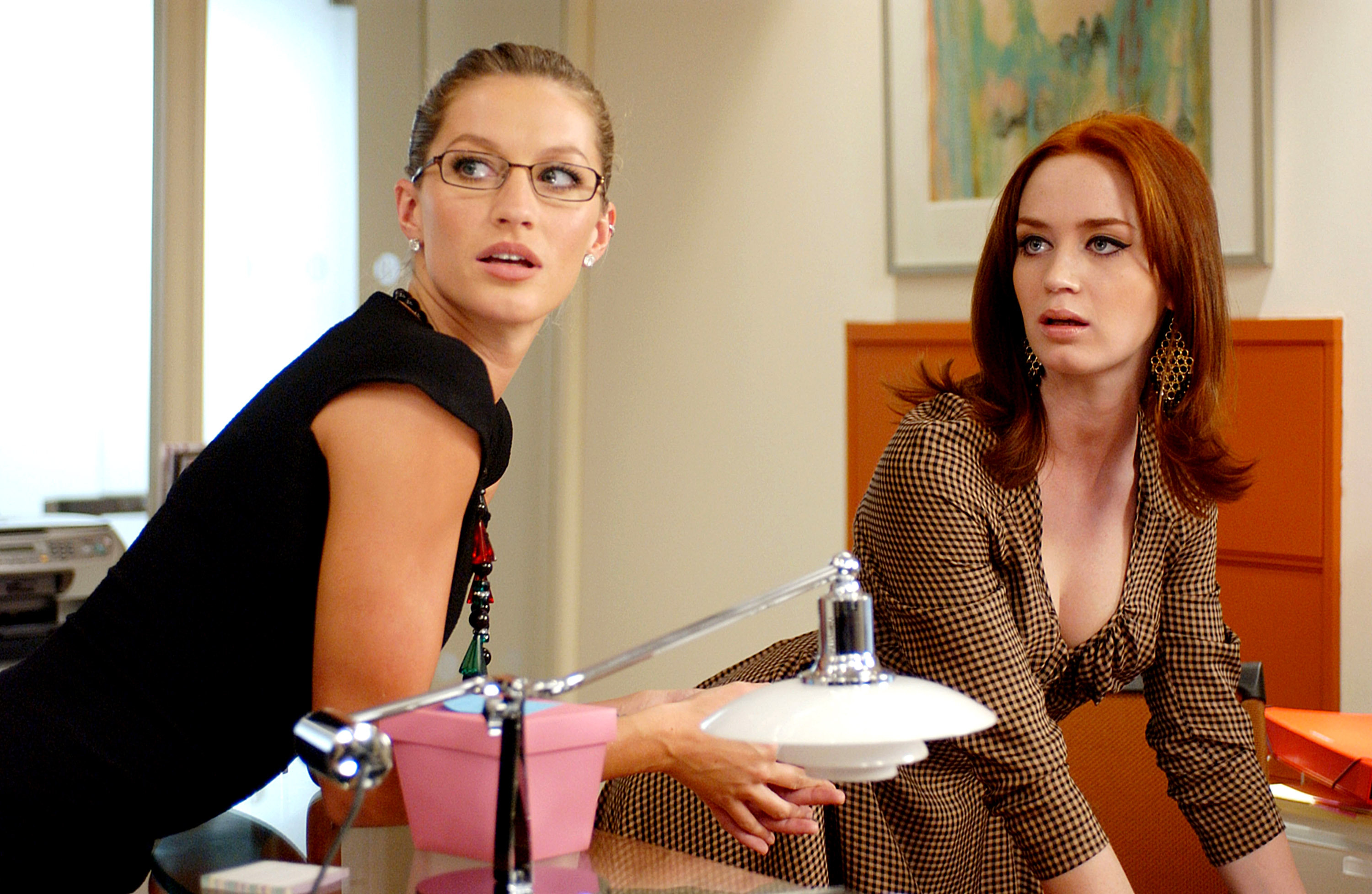
The potential ban raises numerous questions about how TikTok's absence will affect the industry. Namely, how will brands readjust to a new platform (yet again), where will all the content creators go, and what will happen to the trend cycle we've known over the last six years? As for the app's users who've found comfort within its virtual fashion communities, where will they turn to next for outfit inspiration and judgment-free style advice?
Puck News fashion reporter Lauren Sherman says, "[TikTok] has made it a lot easier for brands who have a lot less resources than big fast fashion labels to pick up on all of these micro-trends that have been officially named [by TikTok].” These independent brands that create for clicks, like the once-viral House of Sunny, would likely fall to the wayside without TikTok’s discoverability. No other apps have placed such a heavy emphasis on non-follower content and a primary explore page. According to Social Insider, even accounts with under 5,000 followers will reach peak discoverability 16 days after posting on TikTok, allowing a much wider reach than an exponentially larger audience than their Instagram's following.
Additionally, plenty of smaller brands have flourished under the app’s penchant for discourse, which has afforded them a newfound community and direct-to-consumer access. Marcelo Gaia, who founded his brand Mirror Palais in 2019, has used TikTok as a tool for transparency and a platform for direct responses to customers and critics. His videos, ranging from cost breakdowns of labor, fabric, and technique alongside casual behind-the-scenes insights, garnered him a cult following of 437,800 users. “It’s like I was drawing something on the sidewalk with chalk, and then people started to gather around me,” Gaia explains of garnering a community on the platform. But with a TikTok ban, the dividing wall that separates a small brand from its consumers would likely, over time, be rebuilt back to where it once was.
[TikTok] has made it a lot easier for brands who have a lot less resources than big fast fashion labels to pick up on all of these micro-trends that have been officially named [by TikTok].
Lauren Sherman
In comparison to independent brands, Sherman notes that the app's extinction wouldn't be nearly as fatal for industry power players. Still, a viral TikTok item can pad a big designer’s pocket with sales, and the platform’s absence would likely impact a brand’s business and buzz. For example, Miu Miu’s Spring 2022 micro-mini skirts went mega-viral, and their boat shoes are currently going through TikTok’s algorithm as Summer 2024’s “newest” It shoe, kicking demure kitten heels to the side (there could be another It something by the time you’re reading this). The Italian fashion house also ranked number one on Lyst’s 2023 Q4 report—a quarterly ranking of fashion’s most popular brands and products—and reported an 89 percent increase in their Q1 retail sales year over year thanks, in part, to its fandom on TikTok.
Still, Sherman notes that larger luxury brands like Miu Miu would adjust accordingly, given their agility and extensive resources—just like they did when Instagram overtook Snapchat, and TikTok took over Instagram.
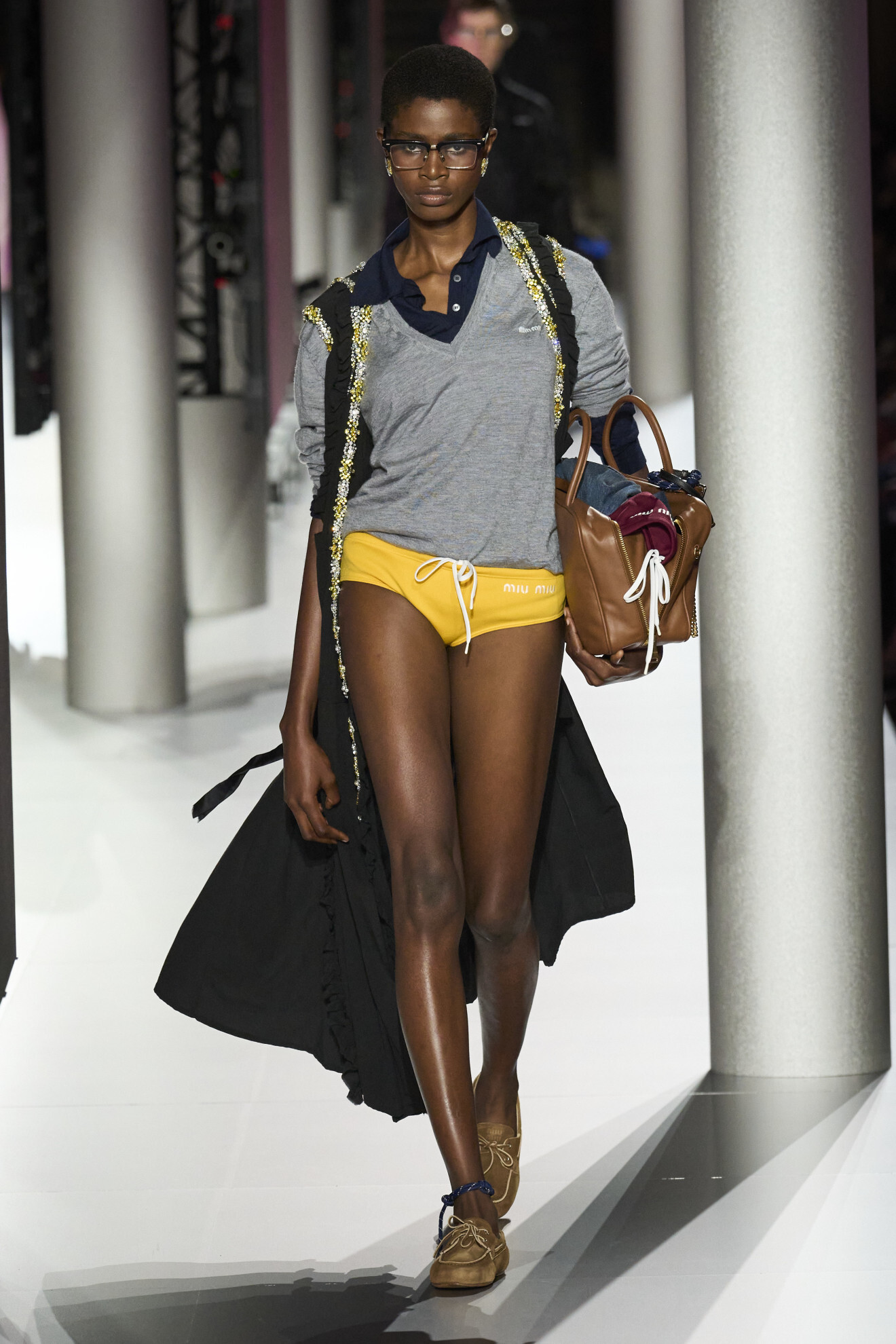
But unlike Snapchat and in stark contrast to Instagram's staged veneer, TikTik's short-form content champions candidness and transparency. Influencers have instead become short-form content creators, with brands and fans alike favoring niche, relatable, and interest-based personalities that haven’t flourished on other social media apps since the death of Vine. With the surging popularity of the “everyman” influencer, no moment is too minuscule to document. From candid try-on hauls and unfiltered ‘fit checks, creators have fed into the trend cycle’s fervor by pushing for every microscopic moment to become a stand-alone aesthetic.
Marketing teams have caught on to the caché of a down-to-earth TikTok content creator, too. You now see familiar faces on #FashionTok starring in brand campaigns and sitting amongst the fashionable and famous during the Fashion Week circuit. Tween-dancer-turned-social media star Charlie D'Amelio starred in Prada Linnea Rossi's Fall 2022 campaign, and Campbell "Pookie" Puckett traveled from Atlanta, Georgia, alongside her husband Jett, into the front row seats during the Fall 2024 season after her "fire" outfit videos became an overnight sensation.
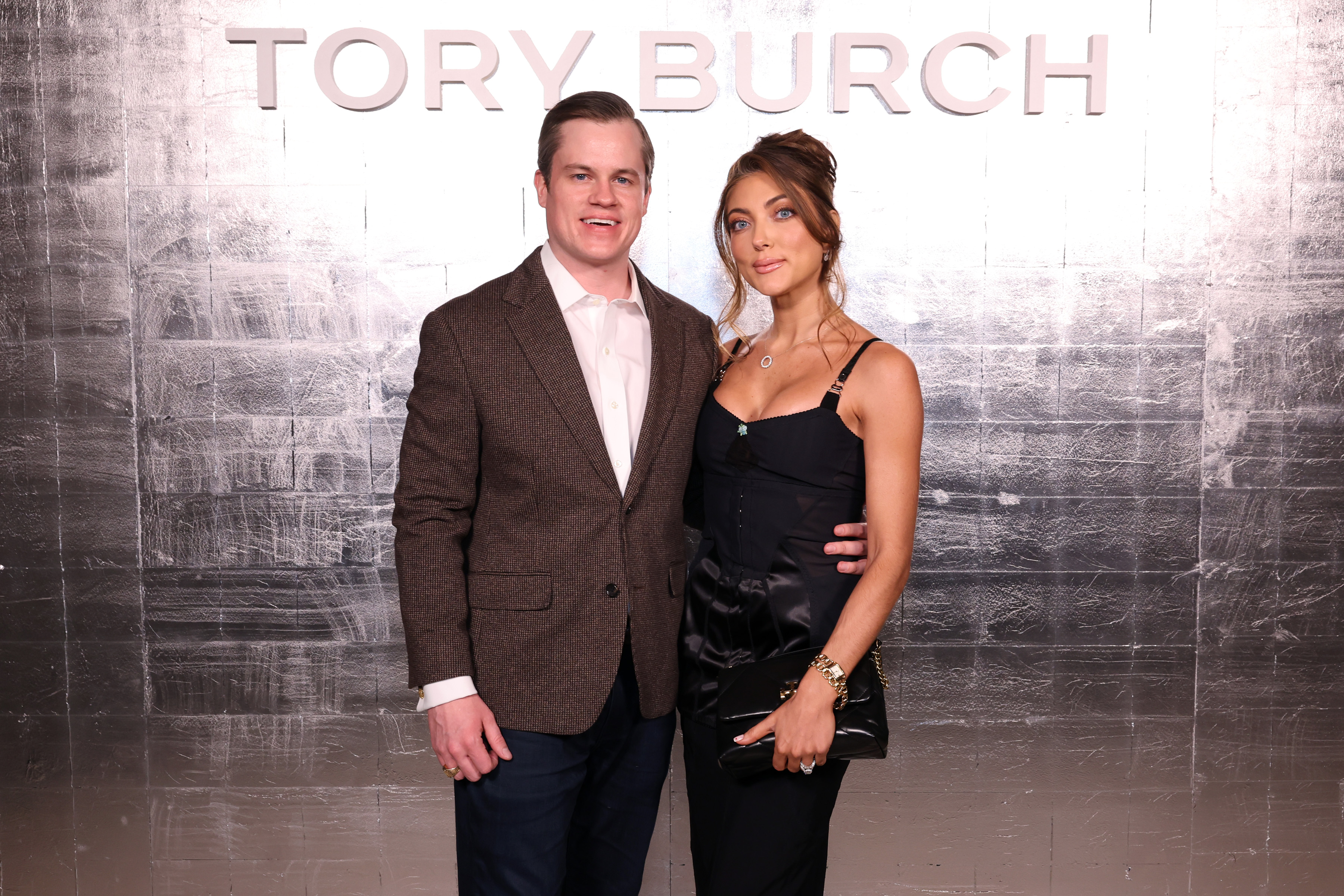
Even Marc Jacobs’s TikTok account has pivoted to feature a multitude of the app’s biggest hits, including videos from DJ Mandy, Mainly Mannie, or the band Laundry Day. The brand’s comment sections are often filled with praise and requests “to give the marketing team a raise,” indicating that Jacobs’s social media strategy has succeeded in finding its target audience.
This year, TikTok also partially sponsored the star-studded Met Gala, with CEO Shou Chew being an honorary chair for "fashion's biggest night.” The event also hosted beloved fashion creator Wisdom Kaye, who’s garnered 11 million followers for his outfit videos and styling challenges. The more candid and viral your fashion content, the more acclaim you receive. And if you coin the next Mob Wife aesthetic, you, too, could eventually snag a prestigious seat at the Met Gala.
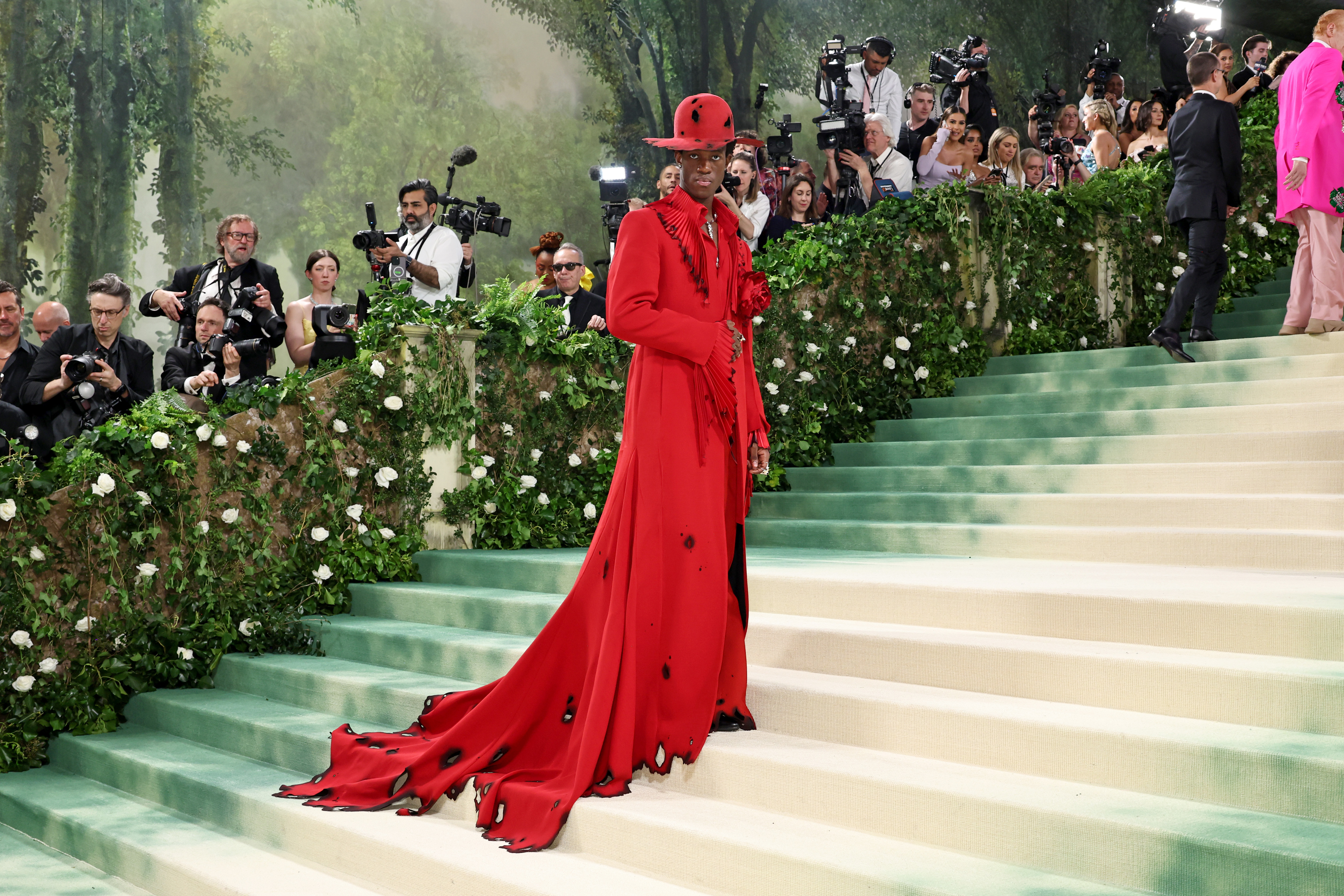
Some argue that TikTok’s format will inevitably carry over to another platform, but there’s little evidence to show that the same strategies—fashion hot takes, vulnerable vlogs, and daily coined trends—can strike twice on a different or existing app. “Instagram Reels is just as good for sharing runway videos, behind-the-scenes content, and fashion history,” says Timothy Chernyaev, a fashion stylist who shares criticism and runway recaps on TikTok. “But I think the comments section on TikTok is where trends [actually] start. A viral style post on TikTok can get thousands of comments, but on Instagram Reels, [the comments are] ads and spam.” To Chernyaev, Reels lacks the organic, community-centric user pool that's become instrumental to TikTok's unique success.
A viral style post on TikTok can get thousands of comments, but on Instagram Reels, [the comments are] ads and spam.
Timothy Chernyaev
Daisy Alioto, founder and CEO of the media group Dirt, echoes Chernyaev. “TikTok is a powerful search engine for discoverability, and, in my experience, people don’t use Instagram to discover new things [anymore].” Query almost anything on the app—take “indie sleaze,” for example—and the platform hones in on the community-powered discourse, from Celine's Winter 2023 collection to tutorials on styling thigh-high socks. The same search term generates hardly anything on Instagram save for a few photo dumps of Alexa Chung and the Olsen Twins.
Without the creator-driven, herd-like traction that fashion aesthetics have found on TikTok, Alioto foresees that the app’s elimination will expose the weakness of these trends. “By weak, I mean aesthetic for aesthetic’s sake”—in other words, trends that originate within the platform’s bubble but will likely burst when they hit the real world without real, substantial roots in the industry. The same goes for TikTok’s mainstream creators, who appeal to the general luxury crowd and shop predominantly through online fads. Fashion researcher and commentator Rian Phin references dystopian fashion Rick Owens bros, Sandy Liang ribbon girlies, and Miu Miu Office Sirens, whose “audiences would likely go back to looking on Instagram for increasingly cool and niche people to guide them, like at the beginning of TikTok." These hyper-specific creators would then be left scrambling to rebuild their digital communities and carve out their corners on the Internet once again.
Though a less dynamic medium, many fashion creatives are now expanding their content and transitioning to Substack newsletters, which allow subscribers to chat in a similar format to popular chat-based platforms like Discord and Reddit. Magasin, a shopping newsletter founded by Laura Reilly, has become the model for a widely popular and active Substack chat that mirrors the community aspect of the TikTok comment section, with many subscribers chatting between themselves in specific, product-based threads. And since expressive personal style is abundant within the Substack space, the platform is a likely candidate to fill the inspiration void if TikTok is banned.
TikTok is a powerful search engine for discoverability, and, in my experience, people don’t use Instagram to discover new things [anymore].
Daisy Alioto
Even with an unknown future, Chernyaev isn't pressured to ditch TikTok and his content creator role anytime soon. "I've considered it, but 30 percent of my following is outside the USA, so I'll still be on TikTok. I may have to send my videos to a friend overseas and have them help post them. I'm not sure how that will work, but I'm not worried," he says. While creators would likely migrate with their followers to alternate apps and align themselves with new trends—the way Sherman notes big fashion brands will—if he has to pivot, Chernyaev is confident his strong fashion fanbase will follow. As for the trend cycle, “as long as people are still wondering what to wear to dinner on a Friday night, there will be content to watch.” But whether that content will lead to micro and macro-cores that shake the fashion industry writ large, that's questionable.
With the current app landscape, there’s little that could recreate the exact “formula” and drive that TikTok has mastered amongst its 150 million American users and throughout the fashion industry. Fit check fails that end in broken heels and ripped jeans haven't quite found their way onto Instagram Reels and maybe never will. Apps have come and gone, but few have democratized fashion’s lust for content like TikTok. And without it, trends may finally know a moment’s rest.







